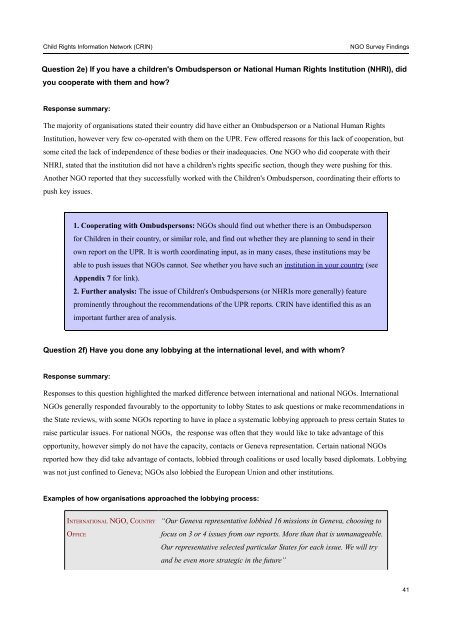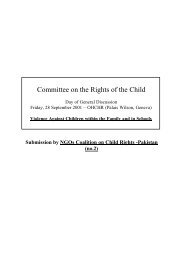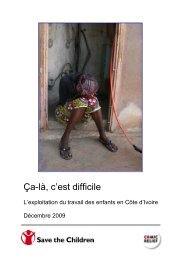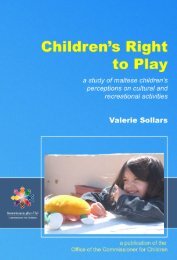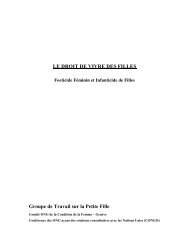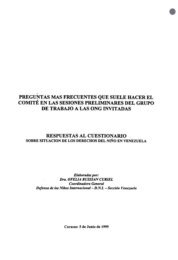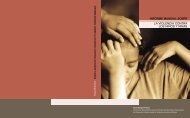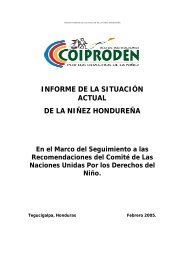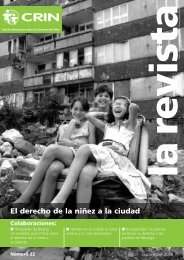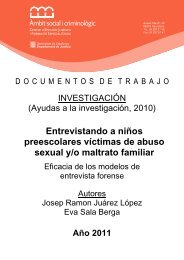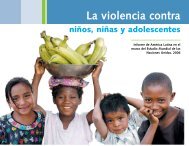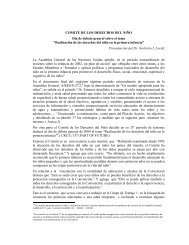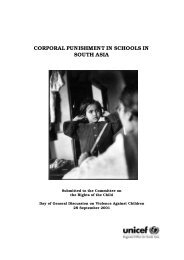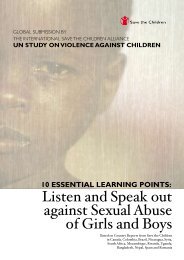Universal Periodic Review: The Status of Children's Rights - CRIN
Universal Periodic Review: The Status of Children's Rights - CRIN
Universal Periodic Review: The Status of Children's Rights - CRIN
Create successful ePaper yourself
Turn your PDF publications into a flip-book with our unique Google optimized e-Paper software.
Child <strong>Rights</strong> Information Network (<strong>CRIN</strong>) NGO Survey Findings<br />
Question 2e) If you have a children's Ombudsperson or National Human <strong>Rights</strong> Institution (NHRI), did<br />
you cooperate with them and how?<br />
Response summary:<br />
<strong>The</strong> majority <strong>of</strong> organisations stated their country did have either an Ombudsperson or a National Human <strong>Rights</strong><br />
Institution, however very few co-operated with them on the UPR. Few <strong>of</strong>fered reasons for this lack <strong>of</strong> cooperation, but<br />
some cited the lack <strong>of</strong> independence <strong>of</strong> these bodies or their inadequacies. One NGO who did cooperate with their<br />
NHRI, stated that the institution did not have a children's rights specific section, though they were pushing for this.<br />
Another NGO reported that they successfully worked with the <strong>Children's</strong> Ombudsperson, coordinating their efforts to<br />
push key issues.<br />
1. Cooperating with Ombudspersons: NGOs should find out whether there is an Ombudsperson<br />
for Children in their country, or similar role, and find out whether they are planning to send in their<br />
own report on the UPR. It is worth coordinating input, as in many cases, these institutions may be<br />
able to push issues that NGOs cannot. See whether you have such an institution in your country (see<br />
Appendix 7 for link).<br />
2. Further analysis: <strong>The</strong> issue <strong>of</strong> <strong>Children's</strong> Ombudspersons (or NHRIs more generally) feature<br />
prominently throughout the recommendations <strong>of</strong> the UPR reports. <strong>CRIN</strong> have identified this as an<br />
important further area <strong>of</strong> analysis.<br />
Question 2f) Have you done any lobbying at the international level, and with whom?<br />
Response summary:<br />
Responses to this question highlighted the marked difference between international and national NGOs. International<br />
NGOs generally responded favourably to the opportunity to lobby States to ask questions or make recommendations in<br />
the State reviews, with some NGOs reporting to have in place a systematic lobbying approach to press certain States to<br />
raise particular issues. For national NGOs, the response was <strong>of</strong>ten that they would like to take advantage <strong>of</strong> this<br />
opportunity, however simply do not have the capacity, contacts or Geneva representation. Certain national NGOs<br />
reported how they did take advantage <strong>of</strong> contacts, lobbied through coalitions or used locally based diplomats. Lobbying<br />
was not just confined to Geneva; NGOs also lobbied the European Union and other institutions.<br />
Examples <strong>of</strong> how organisations approached the lobbying process:<br />
INTERNATIONAL NGO, COUNTRY<br />
OFFICE<br />
“Our Geneva representative lobbied 16 missions in Geneva, choosing to<br />
focus on 3 or 4 issues from our reports. More than that is unmanageable.<br />
Our representative selected particular States for each issue. We will try<br />
and be even more strategic in the future”<br />
41


